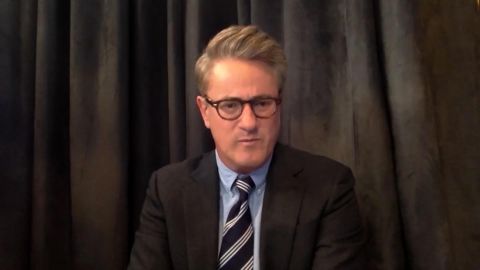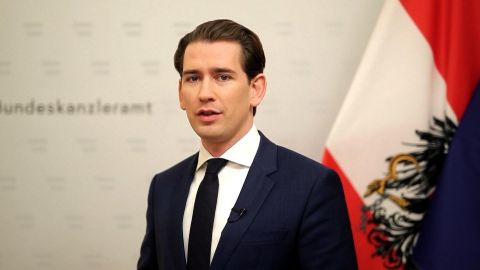Read Transcript EXPAND
CHRISTIANE AMANPOUR: So, we have been talking about the stimulus bills in the United States. And, obviously, Europe has been waiting for its budget and its stimulus bill. And it appears that Poland and Hungary have now removed their objections, and this can go ahead, some 2.2 trillion euros. hat do you make of where we are now in Europe for a stimulus bill? And when can we expect to hear it actually happen?
SEBASTIAN KURZ, CHANCELLOR OF AUSTRIA: Well, I think what is positive is that we took enormous decisions on the European level in the last few months, and everything is prepared, not only the budget, but also the recovery fund. But, as you mentioned, there are some debates still open with Hungary and Poland. And I hope that the German presidency will be able to find a solution. Rule of law, freedom of speech and democracy are extremely important pillars of the E.U., and these pillars should not be negotiable.
AMANPOUR: So, that’s really interesting. You’re really putting down your marker. Those are very, very central to the E.U. project. What do you make of Poland and Hungary trying to use those as obstructions?
KURZ: Well, we are unhappy about that, as you can imagine, and it brings us in a difficult situation. But I hope that it will be possible to find a solution and to find a compromise. It’s not an easy job for the German presidency. But Angela Merkel is extremely experienced. There is a lot of pressure on Hungary and on Poland. And I hope that there will be a solution in the end.
AMANPOUR: So, you mentioned Chancellor Merkel. I’m sure you yourself and all of your European fellow heads of government are very concerned about Brexit. And, as you know, clearly, Prime Minister Boris Johnson is having dinner with the European Commission president, Ursula von der Leyen. What do you think at this point? Do you think there is a deal to be made, or, as some are saying, it looks like Britain may be headed for a no-deal exit?
KURZ: Well, first of all, I think it’s important to mention that we are extremely unhappy that the U.K. decided to leave the E.U. Our goal was always to avoid a no-deal scenario, to avoid a hard Brexit. And I think all responsible negotiators did an extremely good job, especially Michel Barnier, who was the chief negotiator for the European Union. There are still some open questions, but I think that Ursula von der Leyen and Boris Johnson will be able to solve these last few open issues. And I don’t think that the U.K. and Boris Johnson really want a no-deal scenario.
About This Episode EXPAND
Rep. Katie Porter (D-CA) joins Christiane to discuss COVID-19 relief in the United States. Austria’s Chancellor Sebastian Kurtz discusses EU COVID-19 relief. “Morning Joe” co-host Joe Scarborough reflects on the future of conservatism after the Trump presidency.
LEARN MORE


